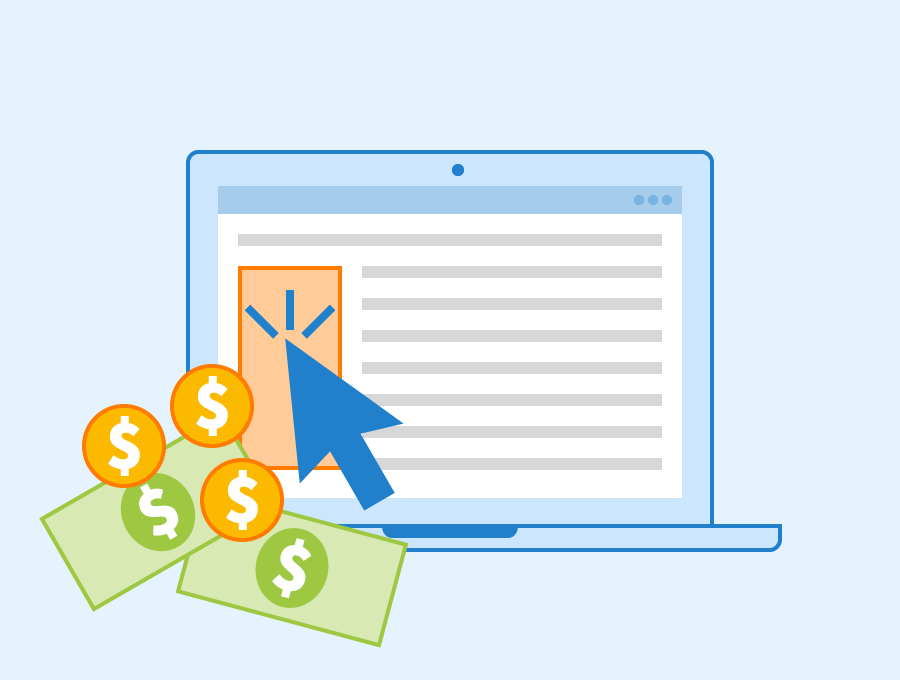Pay-per-click (PPC) advertising is a form of online advertising in which advertisers pay a fee each time one of their ads is clicked. It is a way of buying visits to your site, rather than attempting to “earn” those visits organically.

PPC advertising is typically used by small businesses and entrepreneurs to quickly drive traffic to their websites and increase online visibility. It is also commonly used by larger companies as a way to supplement their organic search strategies.
PPC campaigns can be run on search engines such as Google, Bing, and Yahoo, as well as on social media platforms like Facebook, Instagram, and LinkedIn. The most popular platform for PPC advertising is Google Ads, which allows advertisers to create and manage campaigns on the Google search engine and other Google properties, such as YouTube and Gmail.
To create a PPC campaign, advertisers first select keywords that they want their ads to appear for when users search for those terms. They then create ad groups, which consist of one or more ads and the keywords that trigger those ads. Advertisers can also set a budget for their campaigns and bid on the keywords they want their ads to appear for. The amount that an advertiser bids for a keyword is known as their cost-per-click (CPC) bid.
The position of an ad in the search results is determined by a combination of the advertiser’s CPC bid and the ad’s quality score. The quality score is a metric that takes into account the relevance and usefulness of the ad to the user, as well as the landing page experience.
PPC advertising can be a cost-effective way to drive traffic to a website, but it does require ongoing management and optimization to be successful. Advertisers must constantly monitor their campaigns to ensure that they are getting the most out of their budget and that their ads are reaching their target audience. They must also constantly test and optimize their ads, landing pages, and keyword targeting to improve performance.
One of the major advantages of PPC advertising is that it is highly measurable. Advertisers can track the number of clicks, conversions, and revenue generated by their campaigns, allowing them to make data-driven decisions about how to optimize their campaigns for better results.
Another advantage of PPC advertising is that it allows businesses to reach their target audience at the right time. For example, a business that sells seasonal products can use PPC advertising to reach consumers during the months leading up to the season when those products are in demand.
PPC advertising can be an effective way to drive traffic to a website and increase online visibility, but it does require ongoing management and optimization to be successful. Advertisers must constantly monitor their campaigns to ensure that they are getting the most out of their budget and that their ads are reaching their target audience. They must also constantly test and optimize their ads, landing pages, and keyword targeting to improve performance.